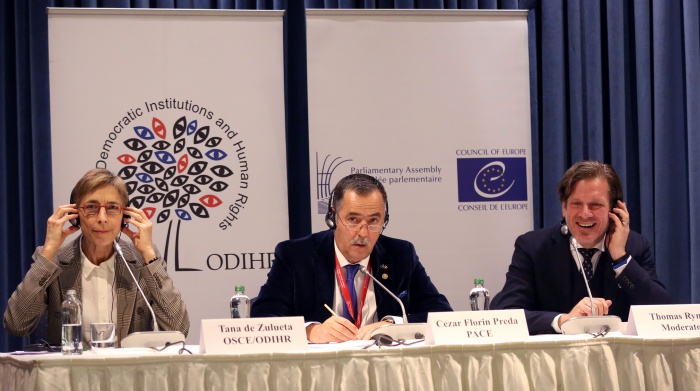An Organization for Security and Co-operation in Europe (OSCE) delegation has met with Turkish opposition party members prior to snap elections on June 24, discussing recent changes to the election law and whether they will affect the fairness of counting votes, according to the Birgün daily.
OSCE representatives met with Republican People’s Party (CHP) deputies Özgür Özel, Muharrem Erkek, Onursal Adıgüzel, Sezgin Tanrıkulu and Sibel Özdemir, and asked them if they expect fraud in the upcoming elections.
“The most important objection to the 2017 referendum vote counting was the acceptance of unsealed ballots, which are now part of the election law,” said Özel, who also criticized a decision to move ballot box locations, if governors deem it necessary, for causing low voter turnout, especially in the East and Southeast of the country.
Erkek also questioned the legitimacy of any vote cast under a state of emergency, saying that “a huge number of people are concerned about fraud in the elections.”
“It is really sad to have a debate about the possibility of election fraud in the 21st century,” said İstanbul deputy and CHP vice chairman responsible for information and communication technologies Adıgüzel. “In the 2017 referendum, in 1,840 ballot boxes there were more ballots than the official number of registered voters. In 960 ballot boxes, all votes were ‘yes’.”
Apart from meeting with the CHP deputies, the OSCE delegation also visited Peoples’ Democratic Party (HDP) members Meral Danış Beştaş, Ertuğrul Kürkçü and Ali Atalan. The HDP statement on the OSCE visit said the security of ballot boxes is in question due to an ongoing state of emergency and that the imprisonment of the HDP’s presidential candidate, Selahattin Demirtaş, has resulted in unfair conditions.
For the April 16, 2017 referendum on constitutional amendments to introduce an executive presidency in Turkey, OSCE observer Tana de Zulueta concluded that “The referendum took place in a political environment in which fundamental freedoms essential to a genuinely democratic process were curtailed under the state of emergency, and the two sides did not have equal opportunities to make their case to the voters.”

